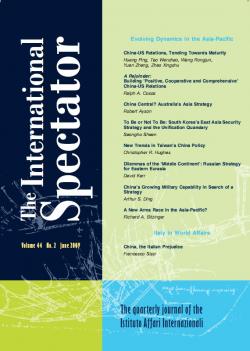The International Spectator, Vol. 51, No. 4, December 2016

26/11/2016
Free The Foreign Policy Legacy of Barack Obama > View this article online
-
Issue
51/4


